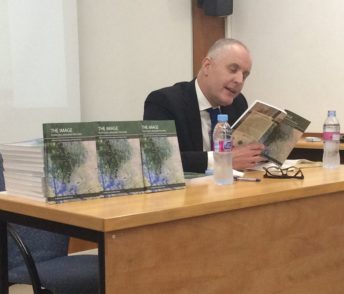Seven Benefits of Extensive Reading for English Language Students

What is extensive Reading?
In simple terms Extensive Reading is reading as many easy books as possible for pleasure, and can be contrasted with intensive reading which is slow, careful reading of a short, difficult text. Day and Bamford (1998), Day (2002), Prowse (2002), and Maley (2008 and 2009) have identified a number of key characteristics of Extensive Reading in language learning. Here is a digest of what I think are the seven most important principles for successful Extensive Reading:
- Students read a great deal, quite quickly (at least 150-200 words a minute) and often.
- The reading material is relatively easy for the level of the students. Too much unknown language prevents students from reading quickly and fluently.
- It is the student, not the teacher, who chooses what to read.
- Students have a wide variety of genres and topics to choose from.
- Students read for pleasure, information or general understanding.
- Reading is individual and silent.
- The teacher asks as a guide, monitor and role model.
What are the benefits of Extensive Reading?
There is a wealth of research into the benefits of Extensive Reading for language learners. Here is a digest of what I consider to be the seven most important benefits:
- Students become better reader
It is widely accepted that people become good readers through reading, and that learning how to read should mean a primary focus of attention on the meaning rather than the language of the text. It is pretty obvious that extensive reading helps students become better readers. Research by Richard Day amongst many others shows that we learn to read by reading. The more language students read, the better readers they become. An integral part of this is learning new vocabulary.
- Students learn more vocabulary
Probably the most cited benefit of Extensive Reading is that it can extend and sustain students’ vocabulary growth. We know that vocabulary is not learned by a single exposure. Experts in language and literacy development such as Harvard University Education Professor Catherine Snow believe that you need to encounter a word or phrase in different contexts between 15 and 20 times to have a high possibility of learning the word or phrase. Students are highly unlikely to encounter vocabulary sufficient times within the classroom to learn it. However, if they read extensively they are much more likely to get multiple encounters with words and phrases in a variety of contexts.
- Students improve writing
Students who read extensively also make gains in writing proficiency (Elley and Mangubhai 1981, and Hafiz and Tudor 1989). This is probably because as students encounter more language, more frequently, through extensive reading, their language acquisition mechanism is primed to produce it in writing.
- Students improve overall language competence
In addition to gains in reading and writing proficiency, research demonstrates that students who read extensively also make gains in overall language competence. For example, Cho andKrashen (1994) reported that their four adult ESL learners increased competence in both listening and speaking abilities through reading extensively. So Extensive Reading would seem to benefit all language skills, not just reading and writing.
- Students become more motivated to read
It is highly motivating for students to discover that they can read in English and that they enjoy it. For this reason it is essential that the books are interesting to students and at a level appropriate to their reading ability. If students find the books compelling and interesting, and can understand them, they may become more eager readers. This can also help to boost their confidence and self-esteem as language learners.
- Students develop learner autonomy.
Students can read anywhere, at any time, and reading extensively helps them become more autonomous learners. To promote learner autonomy extensive reading should be a student-managed activity. That is to say that students should decide what, when, where and how often they read.
- Students become more empathic
Neuroscientific and social science studies have shown that people who read literary fiction extensively are more empathic. People who read novels about other people who are very different from themselves and their backgrounds are particularly empathic.
Conclusion
There are many benefits of Extensive Reading in language learning. These include gains in reading and writing competence, oral and aural skills, vocabulary growth, and increases in motivation, self-esteem and empathy. Students who read extensively also become more autonomous learners.
Seven Extensive Reading websites:
- The Extensive Reading Foundation is a not-for-profit organisation whose purpose is to support and promote extensive reading.
- Extensive Reading is a repository for information on extensive reading, with an emphasis on foreign language learning.
- Rob Waring’s website is another repository for information on extensive reading.
- ER-Central is a not-for-profit organization dedicated to developing an Extensive Reading and Extensive Listening approach to foreign and second language learning. There are wealth of free Extensive Reading and Extensive Listening resources for students.
- Atama-ii is an innovative and interactive series of beginner level easy-English graded readers for all ages 11 and up. The series follows an interactive gamebook format, in which the reader takes on the role of the main character and makes plot choices at set points in the story. These choices lead to one of eight different endings.
- MReader is a website designed to help schools wishing to implement an Extensive Reading program. It allows teachers and students to verify that they have read and understood their reading.
- ERF Graded Reader List is a comprehensive, searchable, downloadable database of graded readers from around the world providing useful information for educators and language learners.
Seven books and articles on Extensive Reading:
- Day, R. and J. Bamford, 1998, Extensive Reading in the Second Language Classroom, Cambridge University Press.
- Day, R. and J. Bamford, 2004, Extensive Reading Activities for Teaching Language, Cambridge University Press.
- Day, R. and Bamford, J. (2002) ‘Top Ten Principles for teaching extensive reading.’ Reading in a Foreign Language. http://nflrc.hawaii.edu/rfl/October2002/day/day.html
- Waring, R. The Inescapable Case for Extensive Reading. http://www.robwaring.org/papers/waring_Nova_2011.pdf
- Maley, A ‘Extensive reading: why it is good for our students… and for us.’ https://www.teachingenglish.org.uk/article/extensive-reading-why-it-good-our-students%E2%80%A6-us
- Stanley, G. Extensive Reading. https://www.teachingenglish.org.uk/article/extensive-reading
- Steiner, J. Reading for Pleasure.
www.orianit.edu-negev.gov.il/english/files/reading/articles/extenrdg.doc
I hope you find the articles, websites and resources useful. Are there any other Extensive Reading resources you’ve used with your students? Let me know in the comments below!
References
Cho, K., & Krashen, S. D. (1994). Acquisition of vocabulary from the Sweet Valley Kids series: Adult ESL acquisition. Journal of Reading, 37, 662–667.
Day, R. (1998) Extensive Reading in the Second Language Classroom. Cambridge: Cambridge University Press.
Day, R. and Bamford, J. (2002) ‘Top Ten Principles for teaching extensive reading.’ Reading in a Foreign Language.
http://nflrc.hawaii.edu/rfl/October2002/day/day.html
Elley, W.B (1991) ‘Acquiring literacy in a second language: the effect of book-based programmes.’ Language Learning. 41. 375-411
Hafiz, F.M and Tudor, I. (1989) ‘Extensive reading and the development of language skills.’ ELT Journal 43 (1) 4-13
Maley, A (2008) ‘Extensive Reading: Maid in Waiting’ in B. Tomlinson (ed) English Language Learning Materials: a critical review. London/New York.
Maley, A ‘Extensive reading: why it is good for our students… and for us.’
https://www.teachingenglish.org.uk/article/extensive-reading-why-it-good-our-students%E2%80%A6-us (accessed 23 September 2016)
Prowse, P. ‘What is the secret of extensive reading?’
http://www.cambridge.org/elt/readers/prowse1.htm (accessed 23 September 2016)
photo credit: Mikhail Pavstyuk




Thank you for this list of benefits of reading and related resources and references.
Stephen Krashen’s free voluntary reading is a similar concept. You’ve listed one of his studies, co-authored with Cho. Are you also aware of his website (http://www.sdkrashen.com/) which includes several other similar articles?
Hi Shaely,
Thanks a lot for taking the time to comment; I’m happy you found the article and resources useful. I do know Krashen’s site and was going to add it to the list but there was only space for seven!
All the best,
Kieran
Great tips. I have always believed that reading helps students to speak, but know I not only confirmed that belief, but I also learned other usages of reading.
Hi Evgenia,
Thanks a lot for taking the time to comment. I’m very happy you found the article useful 🙂
All the best,
Kieran